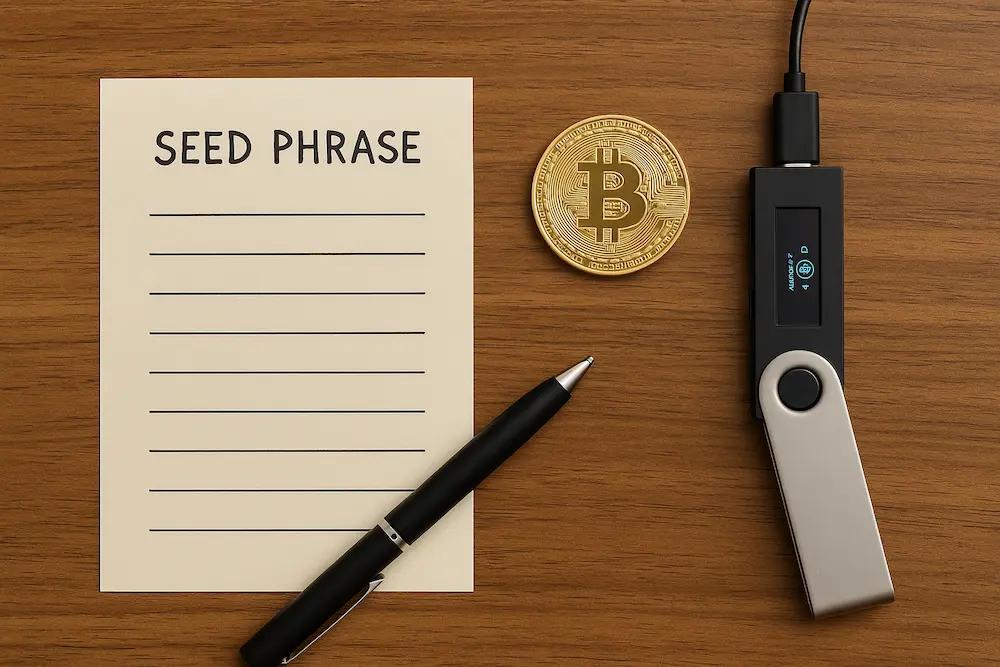BLOG
How Pre-Signed Transactions Work
This article explores how pre-signed transactions provide a secure, automated method for transferring your digital assets, especially in scenarios like inheritance or prolonged inactivity. With both technical and simplified explanations, it highlights how this mechanism works, why it's safer than traditional approaches, and how platforms like BitInPeace make it accessible without compromising self-custody.

Planning Ahead Without Giving Up Control
In cryptocurrency, full control also means full responsibility. But what happens if you become unreachable, incapacitated, or pass away, with no one able to access your wallet?
For most crypto holders, this risk remains unaddressed. Yet the solution doesn't require giving up your keys, relying on third parties, or writing your seed on paper.
Pre-signed transactions offer a powerful alternative: a way to authorize a future transaction now, while you're still in control, so that it can be executed later only if you're no longer active.
What Is a Pre-Signed Transaction?
A pre-signed transaction is a fully valid, signed blockchain transaction that is prepared ahead of time but not broadcast immediately.
You define the transfer:
- From your wallet (controlled by your private key)
- To a chosen recipient (such as an heir or recovery address)
- With specific amounts and gas/fee settings
- Signed securely using your private key
Once signed, the transaction is cryptographically valid, but it remains offline/unpublished. It’s essentially a "sealed envelope" that can be delivered later, only if a condition like prolonged inactivity is met.
This approach allows you to:
- Maintain complete control over your assets while alive
- Ensure automatic execution in critical cases, without relying on anyone else
- Avoid giving away your seed phrase, sharing identity or compromising your wallet security
Why Is This Different from Traditional Solutions?
Most crypto holders either:
- Share their seed phrase with someone they trust (risking theft, coercion, or mishandling)
- Use custodial inheritance tools (sacrificing privacy and full control)
- Set up multisig wallets (which require additional key holders, setup complexity, and often identity sharing)
- Or do nothing at all, leaving assets permanently inaccessible if something happens
Pre-signed transactions provide a non-custodial, self-sovereign, and technically verifiable method to plan for asset transfers, without disclosing any sensitive keys.
It works on any blockchain that supports signed transactions (including Bitcoin, Ethereum, and EVM-compatible chains), and it requires no smart contracts or protocol modifications.
How Does It Work Technically?
Let’s break it down in steps:
1. Transaction Creation
You generate a transaction that transfers your crypto (e.g., 0.5 BTC or 2 ETH) to a designated wallet address. This transaction is prepared in full, same structure as a normal transaction your wallet would send.
2. Transaction Signing
You sign this transaction using your private key. This step proves that you authorized the transaction. The signed output is a valid blockchain-native transaction, ready to be broadcast, but not yet sent to the network.
3. Secure Storage
The signed transaction is saved securely, typically encrypted and stored by a non-custodial service like BitInPeace. Importantly:
- Your private key is never stored
- Only the signed transaction is retained
- You retain the ability to invalidate it by moving your funds
4. Inactivity Detection
BitInPeace monitors your activity such as wallet interactions or periodic check-ins in the platform. If no activity is detected within the duration you define (e.g., 6 or 12 months), it interprets this as a potential loss of access.
5. Broadcast
If the inactivity condition is met, BitInPeace broadcasts the pre-signed transaction to the blockchain. Your crypto is securely transferred to your chosen recipient, according to your original intent.
Clarifying Common Misunderstandings
❌ Pre-signed transactions require smart contracts
Incorrect. Pre-signed transactions work entirely at the protocol level. They are valid signed messages, as expected by the blockchain (e.g., Bitcoin or Ethereum). No smart contract logic is involved.
❌ Only UTXO-based blockchains support this
Incorrect. This method is equally applicable to account-based chains like Ethereum. You can prepare and sign an Ethereum transaction offline (including nonce, gas, recipient, and value), and broadcast it later—just like with Bitcoin.
BitInPeace: Inheritance, Modernized
BitInPeace is designed for users who want to ensure their digital assets are transferred safely without giving up control, compromising privacy, or relying on custodians.
With BitInPeace, you:
- Create a signed transaction using your own wallet
- Choose an inactivity period (e.g., 12 months)
- Store the signed transaction securely
- Let the system handle monitoring and execution
At any time, you remain free to cancel the transaction simply by moving the funds or updating your plan. Nothing is locked or out of your reach.
This makes BitInPeace a unique, user-first approach to crypto inheritance, one that respects the principles of self-custody.
Final Thoughts
Pre-signed transactions are a powerful tool for crypto holders who value privacy, control, and responsible planning. They offer a way to prepare for the future without introducing unnecessary risks or dependencies.
Whether you're planning inheritance, setting up emergency access, or building contingency systems, understanding how pre-signed transactions work puts you ahead.
Take control while you can. Let your crypto legacy live on, even when you go silent.
Learn more at:
Related Reads about Technology

The Future of Digital Inheritance

Digital inheritance is becoming essential as more people hold crypto. Explore how the future will protect your digital legacy.
BitInPeace Team
June 10, 2025

Manual vs. Automated Transfers

Explore the pros and cons of manual vs. automated crypto inheritance methods. Discover which strategy ensures better security, usability, and peace of mind.
BitInPeace Team
May 29, 2025

Wallets Supported by BitInPeace

BitInPeace supports Ledger, Trezor, Exodus, Phantom, and Unisat to enable secure crypto inheritance using pre-signed transactions for BTC and ETH.
BitInPeace Team
May 22, 2025